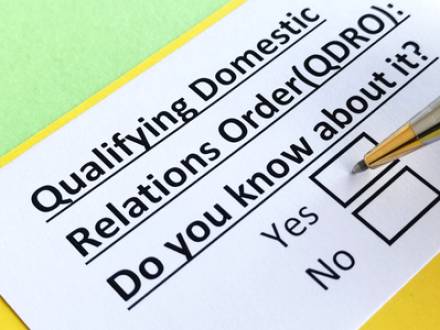Recent Blog Posts
4 Ways to Protect Your Children During a Difficult Divorce
 Couples divorce for many reasons. There may be financial concerns, infidelity, or the simple realization that both spouses want different things and cannot live happily together. Whatever the cause for the split, the situation can be especially traumatic for children in the home. Fortunately, there are several effective strategies to ensure your children are protected during this challenging time.
Couples divorce for many reasons. There may be financial concerns, infidelity, or the simple realization that both spouses want different things and cannot live happily together. Whatever the cause for the split, the situation can be especially traumatic for children in the home. Fortunately, there are several effective strategies to ensure your children are protected during this challenging time.
At Weiler & Associates, P.C., our Illinois divorce attorneys can assist you if you are going through a divorce and have questions about child custody, visitation, alimony, division of assets, and more. Our firm’s founding partner Rory T. Weiler was named the 2022 Lawyer of the Year for Family Law in Chicago by Best Lawyers.
Never Quarrel Around the Children
One of the most damaging things children can experience during divorce is watching their parents fight regularly. Children around constant parental arguing and bickering may develop emotional and behavioral issues. Many studies have demonstrated that children who witness their parents fighting are more likely to develop depression, anxiety, low self-esteem, and anger issues. Keep disagreements with your spouse away from the children.
QDROs and QILDROs in an Illinois Divorce
 Dividing retirement benefits in an Illinois divorce is a tricky process, especially when dealing with employer-sponsored retirement accounts. Qualified Domestic Relations Orders (QDROs) and Qualified Illinois Domestic Relations Orders (QILDROs) are important legal tools that are often a part of this process.
Dividing retirement benefits in an Illinois divorce is a tricky process, especially when dealing with employer-sponsored retirement accounts. Qualified Domestic Relations Orders (QDROs) and Qualified Illinois Domestic Relations Orders (QILDROs) are important legal tools that are often a part of this process.
However, just because you have retirement accounts does not necessarily mean you will need to use a QDRO or QILDRO. Understanding when and how to use each one is the first step in negotiating a fair division of retirement funds, and our Illinois divorce attorneys are here to help.
When Are QDROs and QILDROs Used?
Divorcing spouses use a QDRO or QILDRO when one spouse is entitled to part of the other spouse’s retirement benefits when they divide their assets during divorce. Without these orders, plan administrators cannot legally give any money to the non-account-owning spouse (also called the "alternate payee").
How to Find Out if Your Spouse is Hiding Money During Divorce
 Illinois law requires both spouses to fully and completely disclose their assets during the divorce process, but that does not stop some people from trying to hide money. If you suspect that your spouse is not being honest about their finances, there are legal ways to uncover the truth and make sure the property division process is fair. At Weiler & Associates, P.C., our Illinois divorce lawyers are experienced and include a Certified Financial Litigator to help you with challenging financial issues.
Illinois law requires both spouses to fully and completely disclose their assets during the divorce process, but that does not stop some people from trying to hide money. If you suspect that your spouse is not being honest about their finances, there are legal ways to uncover the truth and make sure the property division process is fair. At Weiler & Associates, P.C., our Illinois divorce lawyers are experienced and include a Certified Financial Litigator to help you with challenging financial issues.
How Do People Hide Assets During Divorce?
Some people go to great lengths to manipulate financial records, shift money around, or underreport their true income. One of the most common methods involves transferring money to a friend or relative under the guise of repaying a debt or giving a gift. The receiving party typically returns the money once the divorce is finalized.
Can My Tax Return Be Taken if I’m Late on Child Support?
 Falling behind on child support can happen to even the most well-intentioned parent and creates a very stressful situation, especially when tax season comes around. If you are worried about whether the government can take your tax refund to cover unpaid child support, first, know you are not alone. Next, understand that the answer to your question depends on whether a court order for collection is already in place.
Falling behind on child support can happen to even the most well-intentioned parent and creates a very stressful situation, especially when tax season comes around. If you are worried about whether the government can take your tax refund to cover unpaid child support, first, know you are not alone. Next, understand that the answer to your question depends on whether a court order for collection is already in place.
If you have not yet been through enforcement actions like court proceedings for wage garnishment or tax refund interception – which usually happen after being very late on large amounts of child support – you may still have time to resolve the issue before your refund is seized. However, once the state flags your overdue payments, your refund, and possibly even other sources of income, could be taken to cover what you owe. At Weiler & Associates, P.C., our Illinois child support lawyers help parents manage challenging child support issues including payment options, and we are here to help you, too.
Can You Work Professionally Together After Divorce?
 For some couples, divorce does not mean a complete break from one another. Whether you co-own a business, work in the same professional field, or hold leadership roles in adjacent organizations, maintaining a productive working relationship might be a necessity after divorce. While emotions may still be raw, for ex-spouses in these situations, professionalism must take priority.
For some couples, divorce does not mean a complete break from one another. Whether you co-own a business, work in the same professional field, or hold leadership roles in adjacent organizations, maintaining a productive working relationship might be a necessity after divorce. While emotions may still be raw, for ex-spouses in these situations, professionalism must take priority.
If you need to work with your ex, success will lie in setting clear boundaries, using communication strategically, and prioritizing the business or workplace over your personal history. Here are some practical strategies for making this arrangement work. Contact our Illinois divorce attorney if you have further questions or need help with your divorce.
Set Clear Boundaries Right Away
One of the first and most critical steps in working together after your divorce is defining professional boundaries. Personal issues should not interfere with business operations, and both of you must commit to maintaining a work-focused mindset.
Rebuilding Your Finances After Divorce
 Divorce almost always brings major financial changes. Even once divorce is over and financial issues have been settled, moving forward requires careful planning. Whether you have gone through a high-asset divorce, faced complex financial disputes, or need to adjust to living on a single income while paying child support, it pays off in the long run to take smart steps now.
Divorce almost always brings major financial changes. Even once divorce is over and financial issues have been settled, moving forward requires careful planning. Whether you have gone through a high-asset divorce, faced complex financial disputes, or need to adjust to living on a single income while paying child support, it pays off in the long run to take smart steps now.
One of the best ways to do this is by working with an Illinois family law attorney who can provide the guidance you need to rebuild with confidence.
Understand Your New Financial Reality
The first step in shoring up your finances after divorce is to make sure you really understand your new financial situation. Make sure you know every last detail about your divorce settlement’s terms on asset division, spousal support, and any other financial obligations, especially monthly payments. You will likely need to adjust your budget to reflect a single income, which means you may also need to start tracking expenses and cutting down where you can.
Supervised Visitation After a Criminal Conviction
 Rebuilding your life after a criminal conviction can be difficult, especially when it comes to reestablishing trust with the people you love. If you have minor children and you are divorced or separated, the court, to say nothing of your child’s other parent, may be especially hesitant to allow you unrestricted access to your children.
Rebuilding your life after a criminal conviction can be difficult, especially when it comes to reestablishing trust with the people you love. If you have minor children and you are divorced or separated, the court, to say nothing of your child’s other parent, may be especially hesitant to allow you unrestricted access to your children.
Whenever there are questions about whether a child may be endangered by a parent, supervised visitation is often a temporary solution. If you have served your time and want to reconnect with your child, understanding supervised visitation, as well as what you can do to bring it to an end, is essential. An Illinois child custody attorney can help you navigate supervised visitation and work toward restoring your parenting rights.
Can You Be Held in Contempt of Court in a Divorce Case?
 In family law cases, emotions often run high, and disputes between divorcing spouses or parents can arise even after a judge issues court orders. If one party fails to follow court orders or meet their legal obligations, the other party may ask the court to hold them in contempt. Understanding when contempt applies, how it is handled, and the potential consequences is crucial for anyone involved in a divorce or family law case.
In family law cases, emotions often run high, and disputes between divorcing spouses or parents can arise even after a judge issues court orders. If one party fails to follow court orders or meet their legal obligations, the other party may ask the court to hold them in contempt. Understanding when contempt applies, how it is handled, and the potential consequences is crucial for anyone involved in a divorce or family law case.
At Weiler & Associates, P.C., our Illinois divorce attorneys have experience addressing contempt cases and other complex family law issues. We work to ensure our clients’ rights are protected and that court orders are enforced.
What Is Contempt of Court?
Contempt of court occurs when someone willfully disobeys a court order. In family law cases, this can include violations of temporary orders during a pending divorce or obligations in a final judgment. However, disagreements or misunderstandings do not automatically lead to contempt. The court will only find someone in contempt if they were aware of the court order and intentionally chose to violate it.
What Does "Substantial Change in Circumstances" Mean?
 If you have gone through a divorce or separation and are dealing with issues like child support, child custody, or alimony, you may have heard the phrase "substantial change in circumstances." This term is important in family law because it determines whether you can request changes to existing court orders.
If you have gone through a divorce or separation and are dealing with issues like child support, child custody, or alimony, you may have heard the phrase "substantial change in circumstances." This term is important in family law because it determines whether you can request changes to existing court orders.
Illinois law allows changes to child support, custody (now called "parenting time" and "decision-making responsibilities"), and spousal support (alimony) when there has been a significant change in circumstances that makes the current order unfair or no longer workable.
Understanding what counts as a "substantial change" and how it applies to your case is critical. A Kane County, IL family lawyer can help you determine if your situation qualifies and guide you through the modification process.
What Does "Substantial Change in Circumstances" Mean in Family Law?
A "substantial change in circumstances" is any major life event or new information that significantly impacts the facts used to create an original court order. Illinois courts will not change child support, parenting time, or alimony without proof that something important has changed since the last order was made.
Will I Be Cross-Examined in My Divorce Trial?
 For many people going through a divorce, the idea of testifying in court can be daunting. The good news is that most divorce cases in Illinois are resolved through negotiations, mediation, or settlements, and do not go to trial.
For many people going through a divorce, the idea of testifying in court can be daunting. The good news is that most divorce cases in Illinois are resolved through negotiations, mediation, or settlements, and do not go to trial.
However, if your case does go to court, you may be required to testify, and this could include undergoing cross-examination. Understanding this process and how an experienced Illinois trial divorce attorney can help is essential when preparing for your divorce trial.
Cross-Examinations During Divorce Trials
In Illinois, divorce trials involve a presentation of evidence and testimony before a judge. If you testify during your trial, you will likely face both direct examination and cross-examination.






 630-331-9110
630-331-9110
 630-587-5680
630-587-5680 2210 Dean Street, Suite K
2210 Dean Street, Suite K



